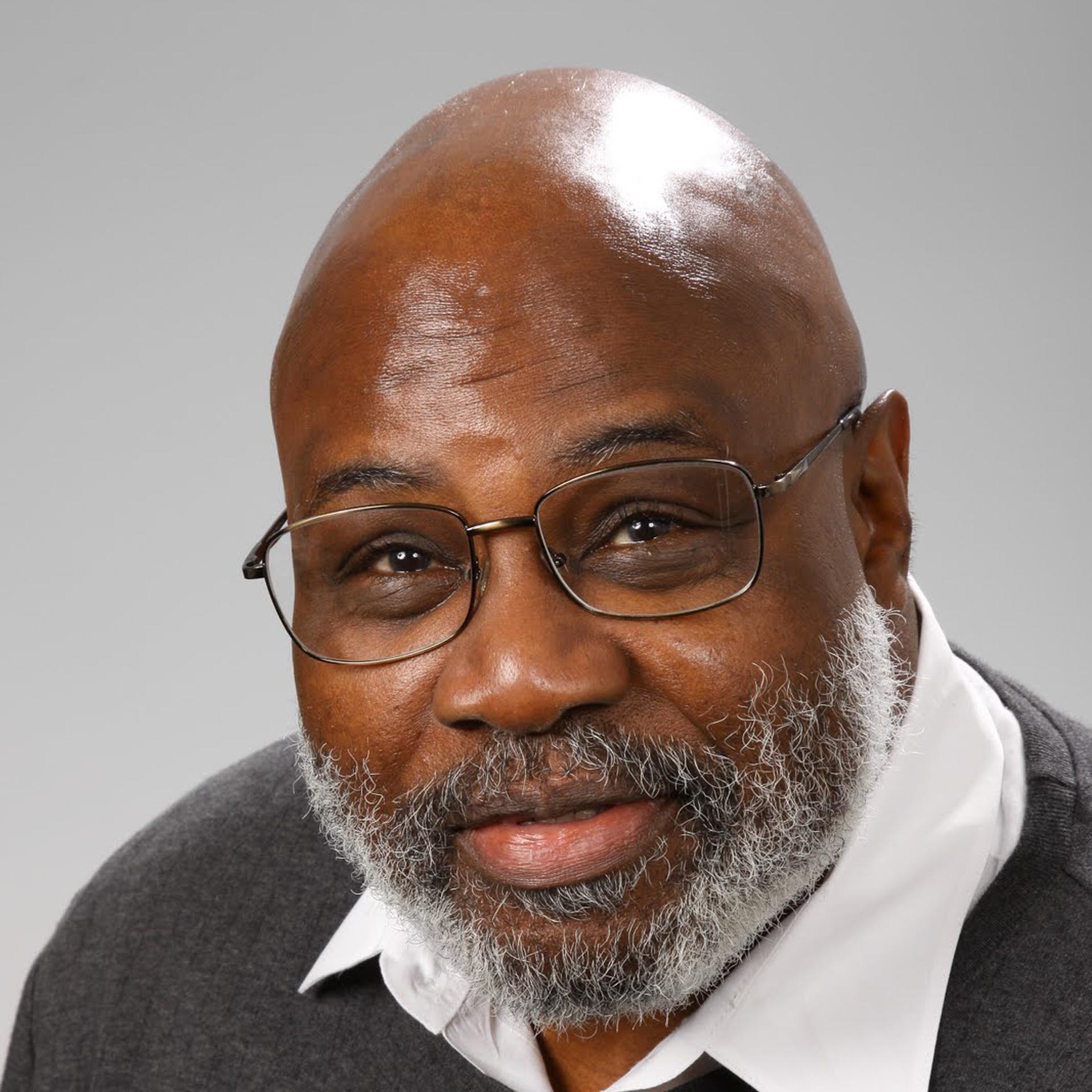This week on EJB Talks we get back to telling the story of Bloustein through retired faculty. Stuart Shapiro welcomes his former colleague in the Public Policy Program and beloved Professor Emeritus, Henry Coleman. Professor Coleman gives Stuart his “origin” story from his time as a student of economics to his work at HUD, leading to his work at Rutgers both as a faculty member and the Director of the Center for Government Services. While at the Bloustein School, Professor Coleman served on a number of New Jersey gubernatorial transition teams as well as on the advisory boards of numerous public and nonprofit bodies. Throughout the conversation, Professor Coleman emphasizes how his service to the community and his connection to teaching students real-world applicable information was a cornerstone of his time at Rutgers.
Stuart Shapiro
Welcome to EJB Talks. I’m Stuart Shapiro, the Associate Dean of Faculty at the Bloustein School, and the purpose of this podcast is to highlight the work my colleagues and our alumni in the fields of policy, planning, and health are doing to make the world the country and New Jersey a better place.
This week, we return to telling the story of Bloustein through our retiring and recently retired faculty. I’m thrilled to be speaking with my former colleague in the Public Policy Program, Professor Emeritus Henry Coleman. Henry, welcome to the podcast.
Henry Coleman
Thanks, Stuart. And thanks for inviting me and I look forward to the conversation.
Stuart Shapiro
So tell us your origin story. How did you come to the Bloustein School? What led you to teach public policy?
Henry Coleman
Ah. Well, it’s probably not that typical in the sense that I had been a traditional academic for the first several years of my career. I went to Tufts University right out of graduate school. But I wanted to get more involved in public policy, instead of doing the traditional kind of model building and econometrics and Slutsky derivations that economists do in the classroom. So I was fortunate enough to be selected as a Brookings Economic Policy Fellow. I used that opportunity to go down to Washington to work in the Office of Policy Development and research at the US Department of Housing and Urban Development. And that really was what got the policy ball rolling for me.
After HUD, or about three years at HUD, I went over to a newly created office at that then-General Accounting Office called the Office of the Chief Economist, where GAO was attempting to expand its influence and to get a bit more into the policy analysis world. After about a year at GAO, New Jersey decided to do one of these special study commissions. It was called the State and Local Expenditure and Revenue Policy Commission, or SLERP was the unfortunate acronym. They conducted a national search to identify the executive director, I, fortunately, came away with that job. And that was the start of my career in public policy in New Jersey. I did the SLERP commission for about three years.
I then served as the head of research at the Office of State planning, which was the policy research arm for the state Planning Commission. I did about a year on governor Florio’s policy staff. And it was shortly after that time that a position at Rutgers became available where I would both join the faculty and serve as the director for an organization called the Center for Government Services. And part of the mission of the Center for Government Services, and indeed, I think all of the Bloustein School and all Rutgers University, was to provide technical assistance and support to New Jersey communities to the state and indirectly to the national government. So I was fortunate enough to get selected as the director of the Center for Government Services. And I have been working in public policy teaching since then.
Stuart Shapiro
So when one thinks of an academic job, one, you know, I think outside people first think of people as teachers, and that’s obviously critically important. Inside the Academy, we tend to put a lot of emphasis on research and getting publications and that kind of thing. But a public policy school, service is also really important. Can you talk about the importance of thinking of a public policy school, from a service lens?
Henry Coleman
Well, I think that service is part of the three-legged foundation, particularly for higher education. The first leg is, as you mentioned, doing research or what I call creating knowledge. The second leg is teaching, which I call imparting knowledge. But knowledge is no good if you don’t put it to use to help solve problems and make things better. And that’s the third leg which I call service. Now, service can be defined in many ways. It can be service to your individual school, it could be service to the university, it could be service to your profession, it could be service to the state, to the nation, to the broader world community. And I think all of those aspects of service are very, very important.
Some part of my career was a function of the opportunities that happen to come my way. So I was on the lookout for service because I thought that it was an important component of my work and my role at the university. The other particular path that I happened to take, was a function of some of the opportunities that happened to come along.
Stuart Shapiro
And in a public policy program like you and I both came through and taught in, those last pieces, the service to the state, to the community, to the country, etc. Those are particularly important. Say, different than a chemistry department, for example.
Henry Coleman
Well, I think that that’s right. And I think that the opportunity to go out, interact with policymakers that are making the decision. To see some of your research and analysis and input, move the needle, sometimes, albeit, a very, very minor amount is really, really gratifying. Now, it doesn’t always work that way. And working in service, particularly if you’re advising policymakers can sometimes be frustrating. But again, I think that that does not diminish its importance at all. And I do think that it does help to influence those other two legs of what academia is all about. It does tend to make you a better teacher. And I hope it also makes you a better researcher.
Stuart Shapiro
Yeah, no, I think that’s a great tying together those three legs and it’s something that I know a lot of our younger faculty members are doing a really good job doing sort of bringing those the different aspects of the academic career together.
Henry Coleman
I would argue, though, that it’s not clear to me that the university has caught up with the importance of service. Not just this university, but lots of universities around the country. I think you’re absolutely right, research is the 800-pound gorilla in tenure and promotion decisions. And I would like to see, before I go to meet my maker, is more universities placed greater weight on the importance of service in evaluating the contributions of faculty.
Stuart Shapiro
Yeah, you and me both. I mean, I think that Rutgers is taking baby steps there in that direction. But I think there’s also a, we don’t really know how to measure that and how to evaluate that. And so I think there have been some challenges with that. And then, of course, there’s always institutional resistance to doing things differently that comes out there.
Henry Coleman
The old saw is, the best way to eat an elephant is one bite at a time. So you make an incremental step. And if you keep just making baby steps in the right direction, I think the university will get where it wants to go.
Stuart Shapiro
Let’s hope so. So what were the service activities, whether it was boards or consulting with policymakers, that you found most significant in your career?
Henry Coleman
Well, there have been several. Certainly the opportunity to work with policymakers. I mentioned the SLERP commission. I worked on several other commissions as well, where I was one of several individuals that had been charged either by a governor or legislative body to go out and try to resolve some specific problems or set of problems. So those commissions have played an important role.
In addition to those commissions, I have also served on transition teams. Indeed, I’ve had the opportunity to serve as a chair or co-chair on several of those transition teams, for Governor McGreevy and Governor Corzine and most recently for Governor Murphy. I don’t mean to suggest that I only do them for Democrats, but they were the only ones that asked me to get involved. And then as you mentioned, I have spent an awful lot of time trying to work with other organizations, sometimes professional organizations, sometimes community organizations, sometimes governmental organizations, in serving on different kinds of boards. Where you try to work with them to influence the overall mission of the organization, as well as a lot of the day-to-day activities on the part of their staff through just providing inputs, insights, reactions to research, and the like.
Stuart Shapiro
You talked a little bit earlier about the connection between service and teaching. Can you talk a little bit about how those experiences affected you in the classroom or maybe led you to teach differently or teach different things than you might have otherwise?
Henry Coleman
Well, I certainly think that as a result of your service, you get exposed to more different perspectives. And as a result of those different perspectives, when you come to class and I never tried to teach an ideologically based class, I wanted to make certain that my students have had an understanding of all sides of the policy debate, or at least as many as I could identify and properly portray. And I think that service really does help to expose you to a wider spectrum of perspectives that you can share with your students.
Service also helps I think, in identifying relative or relevant policy analysis. I mean, I’ve been surprised that the number of different kinds of reports and documents that I become aware of as a result of serving on one commission, one nonprofit organization, and the like. But I also think that service has helped me in the classroom in another way, and that is helping to build a network of associates and contacts. So that, for example, when the Bloustein School looks to identify some of those summer field experiences, I was able on occasion to help match a student with an organization based on that student’s interests and my awareness of that organization. So I just think that service really does help to fulfill the overall framework that you’re trying to portray. As a professor, you want students to learn, you want them to understand and appreciate a lot of different perspectives, and where possible, you’d like for them to get out into the real world and apply some of that kind of information.
Stuart Shapiro
Well, yeah, and that’s huge. I mean, I don’t know how many teaching evaluations I’ve read either of myself or of my colleagues, where students say, you know, I want to connect this work to the real world. You know, it’s nice that you can draw a demand curve and a supply curve on the board, Professor Shapiro, but you know, what does it mean to me? And service is one way of sort of squaring that circle, if you will, as a way of letting students know that what you’re teaching them really does have real-world implications.
Henry Coleman
And again, it takes a little bit more effort. As I mentioned, my first experience as a professor was in a traditional economics department. And it’s a little bit more difficult to make, to identify the policy relevance when you’re talking about the three-stage least square model or the Slutsky derivation, or some of the, you know, a board of Hessian determinants. So we do have to adjust the kinds of things that we want to focus on.
But I think if you think in terms of the kind of way that we teach our students; to look at problems, to identify an issue, try to gather relevant information, sometimes conflicting information, use what they’ve learned, as well as their best judgment to sort of thought through that information, and realize what the best and most relevant information is. You can’t just accept everything you pull down from the internet. And then identify a set of policy options that they think will be responsive to the issue that they want to address. If they follow that formula, then I think they will understand and appreciate how all of this comes together.
Stuart Shapiro
Yeah, no, I think that’s absolutely right. Let me ask you this, thinking about public service more broadly, more generally. In some ways, it’s a really tough time, right? We’re seeing school board members getting threatened. We’re seeing all sorts of attacks on people that want to serve the public. What message would you give to young people to convince them that this is a career and a life worth pursuing?
Henry Coleman
Well, for me, it was pretty easy, in the sense that I found something that I enjoy, and therefore, I didn’t develop knots in my stomach when I had to go to work or when I had to teach and research the kind of things that I did. So I think I would give some similar advice to our students. So think about what it is you enjoy, think about what you want to do to try to make a difference. Sure, it’s going to be difficult sometimes, and there will be challenges, even when they aren’t physical threats. Sometimes there are recalcitrant policymakers, that it’s just difficult to move, no matter how much reason the information you provide them with and you can’t always win. So you will sometimes make the best argument but you’ll be on the losing end of some of those decisions.
But I think if you’re interested in working on behalf of society and working on behalf of particularly economically disadvantaged individuals, which was always one of the groups that I guess occupied a big spot in my heart, it’s worth the effort.
Stuart Shapiro
Yeah. Teaching people and making sure they remember that like that Rolling Stone said, you can’t always get what you want, you’ve got to settle sometimes, you’ve got to make compromises and such, even when you feel things are critically important to get there is a valuable lesson.
Henry Coleman
That’s why you’re a successful teacher as well. I mean, anybody who can integrate Mick Jagger into a public policy discussion ((laughing)) is likely to be a pretty effective professor.
Stuart Shapiro
((laughing)) I gotta tell you, Henry, I don’t know how much longer my students are going to remember who know who Mick Jagger is. ((laughing)) But my, my relevance may be fading there…
Henry Coleman
My sense is that Mick Jagger is going to outlive all of us. He’ll continue to be on the scene. ((laughing))
Stuart Shapiro
((laughing)) Yeah, I probably you know, maybe I should have had what he had.
Henry Coleman
((laughing)) I won’t touch that…
Stuart Shapiro
((laughing)).. But let’s wrap up. Let me ask you as you look back at your career teaching, research, service, all of that, what resonates with you? And what do you remember most fondly?
Henry Coleman
Well, I really remember being in the classroom, interacting with the students, getting to know their names and faces. Sharing with them ideas and trying to do so in a way that reflected my passion for different issues, hopefully motivating some of them to have passion in some of those same directions.
I’ve experienced, and I’m sure you and many of our colleagues have experienced those phone calls 3, 4, 5, 6 years later, where a student either contacts you to say, hey, something came up, and would you send me a copy of your syllabus, because I know we talked about that, and I just don’t remember. Or where they may be just thank you outright for exposing them to some issue that they have found useful in their career pursuit.
So I think that that’s how we all get, get rewarded for the occupation that we’ve chosen when we get the feedback, and we find that those individuals that we have worked with have gone on to do good things in service to society. At least that’s part of what motivates me or motivated me.
Stuart Shapiro
I can’t think of a better note to end on and I think probably those of you listening probably now have a fair idea why Professor Coleman was always one of our highest-rated teachers in the school. Thanks for coming on today, Henry.
Henry Coleman
I brought them cookies from my party…((laughing))
Stuart Shapiro
((laughing)) Well, that doesn’t hurt either. A big thank you to Professor Coleman and to our production team, Amy Cobb and Karyn Olsen. We’ll see you next week with another talk from another expert at the Bloustein School.




